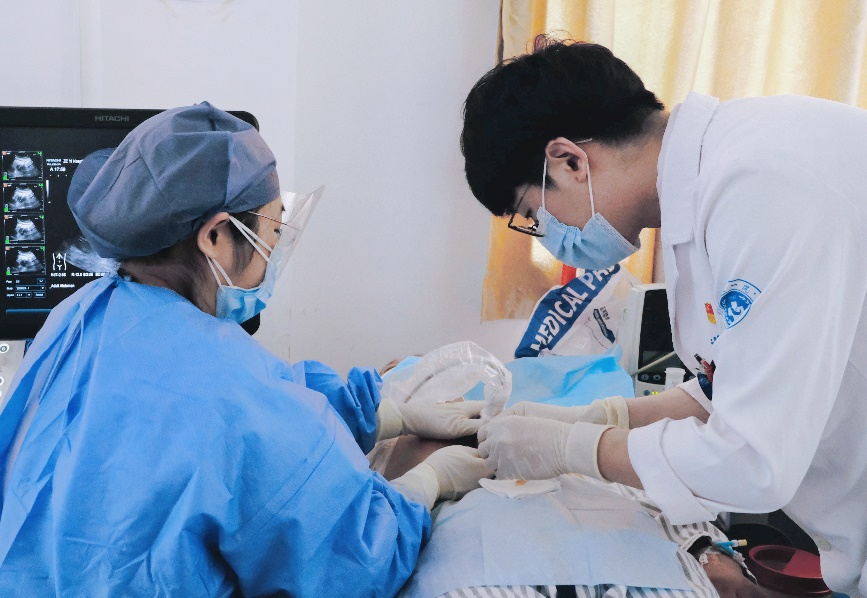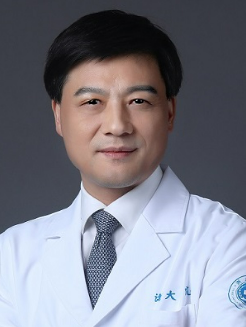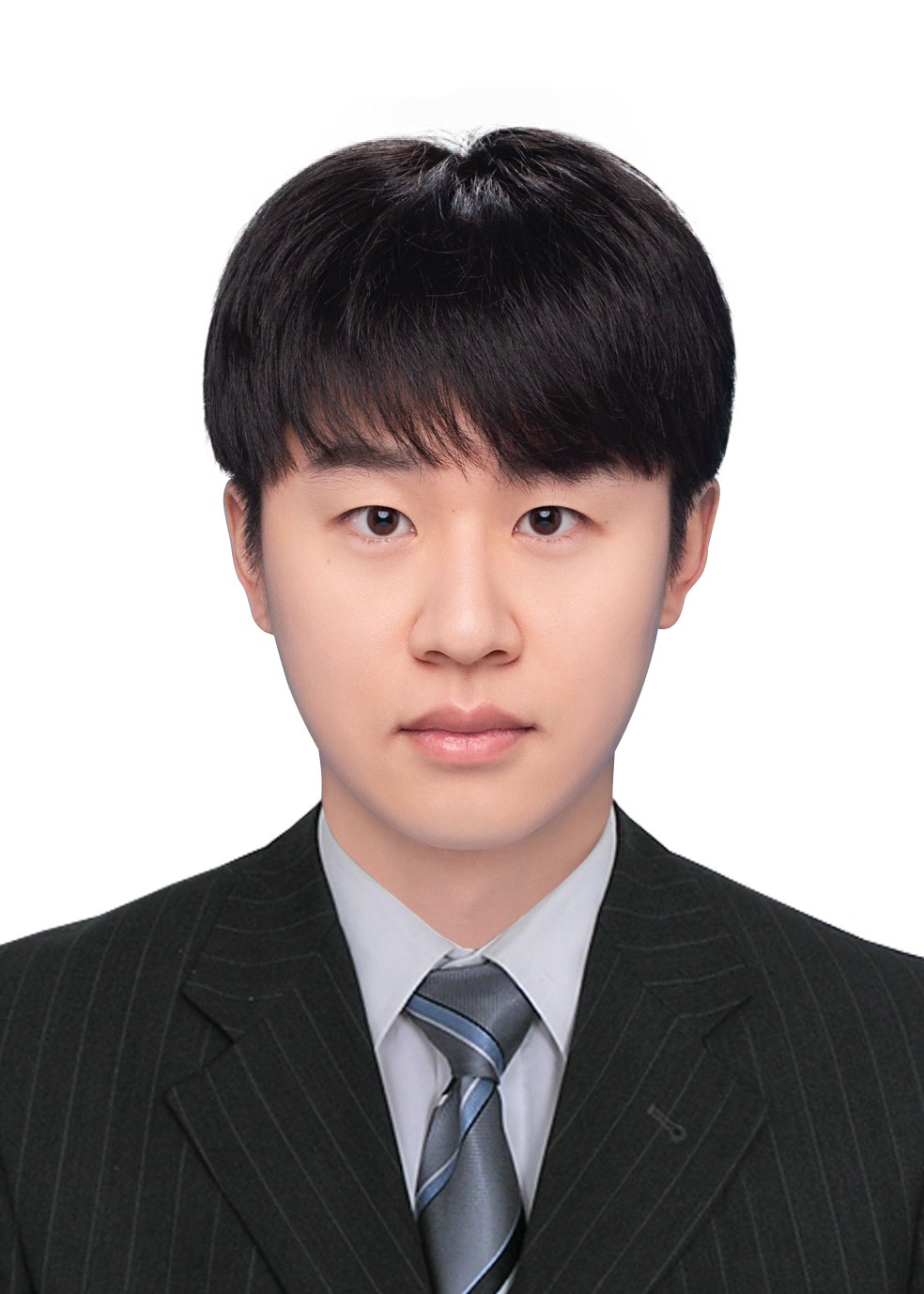Oncolytic viruses, as promising and effective therapeutic cancer vaccines, are ushering in a new era for advanced hepatocellular carcinoma (HCC). The latest research achievement regarding the study of the novel oncolytic virus vaccine, VG 161, applied in advanced HCC patientsconducted by the First Affiliated Hospital, Zhejiang University School of Medicine (FAHZU) has been published in Nature.
Hepatocellular carcinoma is considered as one of the most malignant tumors with poor prognosis. The most intractable problem is post-operational tumor recurrence, and low overall survival rate (i.e. the 5-year survival rate of patients remaining at 18%). Common symptoms during the onset of early liver cancers can be subtle and non-specific, including abdominal pain, fatigue, weight loss, etc. As these symptoms are often overlooked, many patients have progressed to the late stage when diagnosed, reaching beyond the point where surgery option is viable.
Advanced HCC has a relatively poor prognosis, with survival rates varying depending on the stage and treatment options. Although targeted therapy and immunotherapy have achieved certain progress, the problem of its drug resistance following multiple rounds of treatment further complicates treatment options. Myriads of patients are facing the dilemma of limited feasible treatment, emphasizing the urgency for developing novel therapeutically viable strategies for HCC patients in clinical practice.
The research team led by Professor LIANG Tingbo from the Department of Hepatobiliary and Pancreatic Surgery of FAHZU successfully developed the first world-class 3rd generation of oncolytic virus vaccine, VG161, resolving one of the most intractable problems occurred in advanced HCC treatment, that is the drug resistance, and achieving a quantum leap in curing recurrent and refractory neoplasms. The research results were published in the journal Nature on 20th March of Beijing time, titled “Oncolytic virus VG161 in refractory hepatocellular carcinoma”, witnessing a top-notch leading research on the field of oncolytic virus vaccines.

Figure 1. Schematic diagram expounding the mechanism of action of oncolytic virus killing malignancies and enhancing tumor-specific immunity in TME.
Breaking through the dilemma: limited curative options
The key limitation of no matter targeted therapy, immunotherapy or even combination therapy is that cancer cells can be intrinsically irresponsive or acquire resistance following multiple rounds of treatment, causing treatment failure and poor survival. As the cancer cells acquiring the ability to break free from the "shackles" of drugs and regain growth momentum, it leads to further metastasis and liver failure of patients. It may also cause serious complications such as ascites, jaundice, and hepatic encephalopathy, significantly compromising the survival and quality of life.
“Conventional HCC treatments are limited to the first- and second-line options, whereas, there is lack of standardized strategy for third-line treatment. Once patients develop drug resistance against the available drugs, they are very likely to fall into the dilemma of ‘no cure’,” explained Professor LIANG Tingbo, emphasizing the need for novel therapies.
Oncolytic viruses are a type of anti-cancer agent in immunotherapy. As an emerging "new star" in the anti-cancer therapeutics, the versatility of OV vaccines is achieved by genetic modifications by manipulating the vector with an installation of cancer cell "directional GPS", and exogenous "helpers". With such manipulations, the viruses can selectively infect malignancies and kill tumor cells without damaging normal tissues. Meanwhile, it activates the immune system, revealing systemic anti-tumor efficacies.
“Oncolytic viruses are able to carry and express multiple exogenous genes, enhancing the local immunity and inhibiting immune escape, thereby maximizing the cytotoxic effect of vaccines.” Dr. SHEN Yinan stated his inspiration, on the basis of which the team started to explore the underlying huge potential and the versatility of oncolytic viruses to treat liver cancers.
New hope for advanced HCC curing options
Over many years, the research team led by Professor LIANG Tingbo has been committed to building and gradually expanding the innovative transformation platform on the construction of novel oncolytic viruses. Scientists integrate laboratory research and clinical resources to promote drug development and clinical transformation of oncolytic viruses.
Researchers applied oncolytic virus therapy to the treatment of third-line HCC patients who are suffering from relapsed and refractory liver cancers. For this purpose, a novel oncolytic virus VG161 carrying multiple immune stimulatory factors has been designed and administered to the patients, achieving astonishing therapeutic efficacies.
The VG161 viruses profoundly activate both adaptive and innate immune responses by expressing IL-12 and IL-15, and immune checkpoint blockade peptides, that activates systemic anti-tumor immunity, and reverses the situation of immune escape of cancer cells in the meantime. The research achievement has been recognized as a “breakthrough therapy” by China’s National Medical Products Administration.

Figure 2. Clinical administration
“At present, a new generation of oncolytic viruses characterized by the expression of multiple immune stimulatory factors is constantly emerging, and it is possible to become another major breakthrough after immune checkpoint inhibitor drugs, and VG161 is one of them.” Professor LIANG explained that immunotherapy is the 3rd round revolutional change in cancer treatment. As one of the most significant directions of tumor immunotherapy strategies, oncolytic viruses possess enormous potential for curing advanced tumors. Theoretically speaking, the oncolytic virus vaccines are able to prevent recurrence, and patients are expected to be finally cured.
The results of the study showed that the objective response rate (ORR) of VG161 as a third-line drug for the treatment of liver cancer reached 17.65%, and the overall survival (OS) reached 9.4 months. The overall efficacy was comparable to the standard second-line treatment regimen, achieving an important breakthrough.
"Sandwich therapy"
Clinically, around 90% of HCC cases develop from chronic hepatitis B, and most patients are administered with long-term oral anti-HBV drugs. Whether anti-HBV drugs will affect the efficacy of oncolytic viruses is a common concern of patients and clinicians.
Through in vivo and in vitro tests, researchers confirmed that oral anti-HBV drugs exerted no effect on the replication and efficacy of VG161. “Our finding has dispelled the doubts that have been deeply buried in the hearts of HCC patients and physicians,” Dr. SHEN Yinan said.
It is gratifying that the team found that the median overall survival of the subjects who received immunotherapy for more than 3 months before enrollment was significantly extended from 9.4 months to 17.3 months after receiving VG161 treatment.
Since the time of subject out, they continued to use the original standard systemic regimen that was already resistant, and their survival was surprisingly further extended. This not only suggests that VG161 may reverse liver cancer resistance to a certain extent, but also brings a new “sandwich therapy” regimen for the treatment of refractory HCC cases. All in all, VG161 is the key factor in “sandwich” therapy.
Professor Liang firmly believes this research opens a new era for stubborn and aggressive malignancies by reversing the situations of drug resistance and impaired immunity in patients. He also demonstrated the promising potential of oncolytic viruses as a novel tumor immunotherapy, and expecting the vaccines bring hope to more patients suffering from advanced cancers in the near future.
More Information
The co-first authors of the study are SHEN Yinan, BAI Xueli, ZHANG Qi and LIANG Xingmei from the First Affiliated Hospital of Zhejiang University School of Medicine, and LIANG Tingbo is the sole corresponding author.

Prof. LIANG Tingbo,the president of FAHZU and director of MOE Joint International Research Lab of Pancreatic Diseases. He focuses on translational research and diagnostic-therapeutic strategy innovation for hepatobiliary-pancreatic tumors, technological innovation in organ transplantation and target organ function preservation studies, as well as theoretical and technological advancements in Enhanced Recovery After Surgery (ERAS) and its clinical implementation. His work has yielded multiple landmark achievements and significant breakthroughs across these disciplines.

Dr. SHEN Yinan holds Postdoctoral fellow in medicine, and visiting scholar at City of Hope National Medical Centre, USA. As a specially-appointed researcher and physician in the Department of Hepatobiliary and Pancreatic Surgery, FAHZU, he contributesto basic research and clinical transformation of new immunotherapies for hepatobiliary and pancreatic malignancies.


